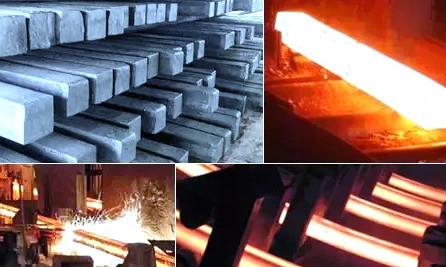Tel: 0129-4001010 Phone: +91 730 321 5033
Email: cs@absoluteveritas.com
BIS CERTIFICATION FOR STOCK FOR FORGINGS IS 13352:1992
In today's competitive landscape, maintaining market presence without a certified, high-quality product can be challenging. Obtaining a BIS license may also be essential for selling products in the Indian market. To achieve BIS certification and ensure product quality, manufacturers must adhere to the specified Indian standards.
Let's delve deeper into at IS 13352:1992 for forgings.
This standard delineates the technical and delivery parameters for plain carbon and low alloy grade steels, presented as bars, billets, and various other shapes, manufactured through a continuous cast route, either by rolling or forging.
The steels addressed in this standard are typically utilized as raw materials by the forging industry for manufacturing automobiles or other engineering components.
Material supply must adhere to the general requirements outlined in IS 1387:1967. The reduction ratio from the cast product to the forging stock should be a minimum of 6:1. The standard mandates that the stock must be devoid of any detrimental internal defects. However, for particular applications, higher or lower reduction ratios can be mutually agreed upon between the purchaser and the manufacturer during the inquiry and ordering process.
The continuously cast steel stock, whether rolled or forged, must be devoid of detrimental surface and subsurface defects that could compromise the steel's forgeability or suitability for end-use. Prior to rolling, the continuously cast billet or bloom must undergo appropriate conditioning measures to guarantee product quality.
Continuously cast steel that is rolled or forged must also be devoid of detrimental internal defects, including corner cracks, half-way cracks, center looseness, concentrated pinholes, voids, flakes, and similar issues.
The hardness and mechanical properties corresponding to each grade will adhere to the relevant Indian standard designated for the specific steel application. Rigorous hardness and mechanical tests are conducted to guarantee the quality of the product.
The chemical composition, mechanical properties, and grain size must align with the specifications outlined in the standard. Foreign stock rolled from continuously cast products must adhere to stringent surface quality standards, while size tolerances should comply with 3739:1987.
MARKING
Marking procedures must adhere to IS 13352:1992 guidelines. Additionally, the material may bear the standard mark (ISI Mark), which is mandatory. To utilize the standard mark (ISI Mark), the manufacturer must acquire a BIS license from the Bureau of Indian Standards. This license is granted following a thorough assessment of manufacturing infrastructure, quality control measures, testing capabilities, and the manufacturing process.
PROCESS FOR BIS ISI MARK CERTIFICATION

BIS CERTIFICATION PROCESS
Acquiring a BIS license requires a comprehensive review of manufacturing infrastructure, quality control abilities, testing resources, and production procedures. This thorough assessment guarantees that products not only adhere to regulations but also prioritize consumer safety and reliability.
NOTE:
For comprehensive guidance on the BIS ISI Certification process, please explore:
WHY USE ABSOLUTE VERITAS?
Absolute Veritas is a prominent organisation from the private sector of India primarily dealing with the Inspection, Testing, Audits, Certification of products& consulting services to various industries in India and worldwide, ensuring compliance with regulatory standards and industry requirements. Offering a comprehensive range of services including product certification, testing, training, auditing, and compliance services, Absolute Veritas helps manufacturers and importers achieve higher production efficiency and quality standards.
Absolute Veritas (AV) will handle end to end pre-registration request, sample preparation, documentation, testing and application process for FMCS Certification
For any questions regarding the most recent update on FMCS registration licenses, please reach out to us via email at cs@absoluteveritas.com








 ❮
❮
